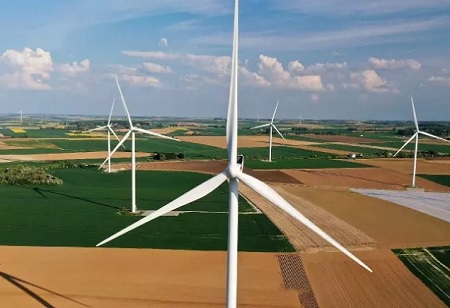
The central government may look into green masala bonds and infrastructure investment trusts (InVITs) to meet its goal of increasing its renewable energy capacity to 500 Gigawatt (GW) by 2030, which will require an investment of Rs 17 lakh crore for long-term commitments.
In contrast to the expected investment for the last several years, which has only been in the range of Rs 75,000 crore, this would also include associated transmission expenses, and the nation would need an annual investment of Rs 1.5–2 lakh crore in the sector of renewable energy.
The renewable energy ministry aims to work towards investigating novel financing mechanisms in order to bridge this enormous gap between the required and actual investment, as well as the fact that the overall debt requirement is high and lowering the cost of financing for the renewable energy developers is important.
Alternative finance options such the infrastructure development fund (IDF), infrastructure investment trusts (InVITs), alternative investment funds, green masala bonds, and even crowd fundraising for the renewable energy industry are likely to be examined.
In addition, sources familiar with the situation said that the ministry may look into the possibility of imposing renewable finance obligations on the lines of renewable purchase obligations for banks and financial institutions in order to force them to invest a particular percentage of their investments in the renewable energy sector.
In light of the fact that green banks have become a cutting-edge tool for speeding clean energy financing on a worldwide scale, the government may also consider establishing a green bank system to handle the country's renewable energy sector's ongoing financial issues.
We use cookies to ensure you get the best experience on our website. Read more...